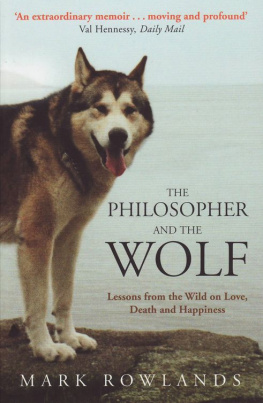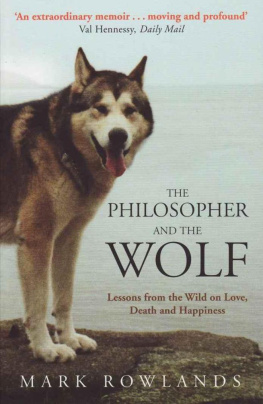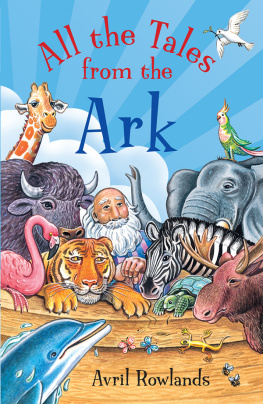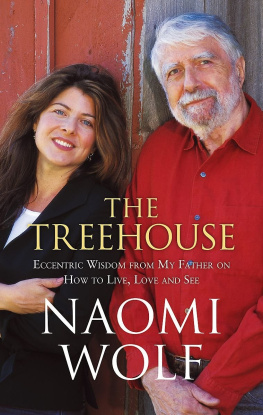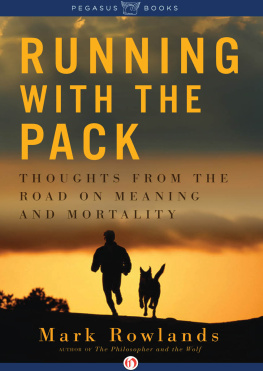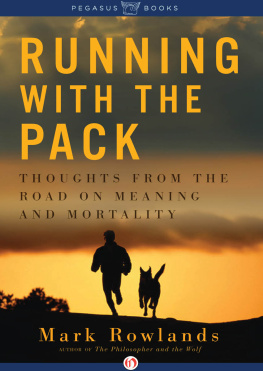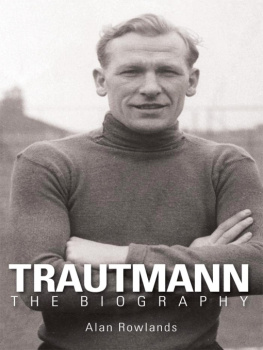George Miller first commissioned this book for Granta. This was almost certainly an act of great faith on Georges part since, by common consensus, no one really had a clue what was going on in the early drafts of the book. When George left, the editorial process was taken over by Sara Holloway, who is a dream of an editor. Her perceptive, intelligent and, above all, patient questions, and her determination to make sure that I didnt lose track of what was important, made this book much better than it would otherwise have been. The copy-editing was done by Lesley Levene. Never, in my fairly extensive experience, has the copy-editing process been so painless, even faintly enjoyable, and never have I learned so much about the art of writing from this process. My deepest thanks to all three parties. Thanks also to Vicki Harris for consistently excellent proof-reading. And thanks, it goes without saying, to my agent, Liz Puttick, for getting yet another one of my crazy projects off the ground.
This book would not exist without its subject matter. So, thank you, Brenin, my wolf brother, for sharing your life with me and, of course, thanks to your sidekicks Nina and Tess.
Finally, to Brenin: my son and not my brother. I cant say that I wrote this book for you, because it was begun before you were even a glint in your old mans eye. But I finished it because I wanted you to understand your name. That and I had spent the advance. Remember, in the end, and how many times I am going to regret saying this I shudder to think: it is only our defiance that redeems us.
1
This is a book about a wolf called Brenin. For more than a decade during most of the 1990s and some of the 2000s he lived with me. As a consequence of sharing the life of a rootless and restless intellectual, he became an extraordinarily well-travelled wolf, living in the US, Ireland, England and, finally, France. He was also the, largely unwilling, beneficiary of more free university education than any wolf that ever lived. As you will see, dire consequences would ensue for my house and possessions should I leave him unattended. So I had to bring him into work with me and as I was a philosophy professor, this meant bringing him to my lectures. He would lie in the corner of the room and doze much like my students really while I droned on about some or other philosopher or philosophy. Occasionally, when the lectures became particularly tedious, he would sit up and howl a habit that endeared him to the students, who had probably been wishing they could do the same thing.
This is also a book about what it means to be human not as a biological entity but as a creature that can do things no other creatures can. In the stories we tell about ourselves, our uniqueness is a common refrain. According to some, this lies in our ability to create civilization, and so protect ourselves from nature, red in tooth and claw. Others point to the fact that we are the only creatures that can understand the difference between good and evil, and therefore are the only creatures truly capable of being good or evil. Some say we are unique because we have reason; we are rational animals alone in a world of irrational brutes. Others think it is our use of language that decisively separates us from dumb animals. Some say we are unique because we alone are capable of free will and action. Others think our uniqueness lies in the fact that we alone are capable of love. Some say that we alone are capable of understanding the nature and basis of true happiness. Others think we are unique because we alone can understand that we are going to die.
I dont believe any of these stories as accounts of a critical gulf between us and other creatures. Some of the things we think they cant do, they can. And some of the things we think we can do, we cant. As for the rest, well, its mostly a matter of degree rather than kind. Instead, our uniqueness lies simply in the fact that we tell these stories and, whats more, we can actually get ourselves to believe them. If I wanted a one-sentence definition of human beings, this would do: humans are the animals that believe the stories they tell about themselves. Humans are credulous animals.
In these dark times, it does not need emphasizing that the stories we tell about ourselves can be the biggest source of division between one human and another. From credulity, there is often but a short step to hostility. However, I am concerned with the stories we tell to distinguish ourselves not from each other but from other animals: the stories we tell about what makes us human. Each story has what we might call a dark side; it casts a shadow. That shadow is to be found behind what the story says; here you will find what the story shows. And this is likely to be dark in at least two ways. First of all, what the story shows is often a deeply unflattering, even disturbing, facet of human nature. Second, what the story shows is often difficult to see. The two senses are not unconnected. We humans have a pronounced facility for passing over the aspects of ourselves we find distasteful. And this extends to the stories we tell to explain ourselves to ourselves.
The wolf is, of course, the traditional, if unfairly selected, representative of the dark side of humanity. This is in many ways ironic not least etymologically. The Greek word for wolf is lukos, which is so close to the word for light, leukos, that the two were often associated. It may be that this association was simply the result of mistakes in translation, or it may be that there was a deeper etymological connection between the two words. But for whatever reason Apollo was regarded as both the god of the sun and the god of wolves. And in this book it is the connection between the wolf and the light that is important. Think of the wolf as the clearing in the forest. In the bowels of the forest, it may be too dark to see the trees. The clearing is the place that allows what was hidden to be uncovered. The wolf, I shall try to show, is the clearing in the human soul. The wolf uncovers what is hidden in the stories we tell about ourselves what those stories show but do not say.
We stand in the shadow of the wolf. Something can cast a shadow in two ways: by occluding light or by being the source of light that other things occlude. We talk of the shadows cast by a man and those cast by a fire. By the shadow of the wolf, I mean not the shadow cast by the wolf itself, but the shadows we cast from the light of the wolf. And staring back at us from these shadows is precisely what we dont want to know about ourselves.
2
Brenin died a few years ago. I still find myself thinking about him every day. This may strike many as overly indulgent: he was, after all, just an animal. Nonetheless, despite my life now being, in all important respects, the best its ever been, I have become, I think, a diminished thing. Its really hard to explain why, and for a long time I didnt understand. Now I think I do Brenin taught me something that my protracted formal education did not and could not teach me. And its a lesson that is difficult to retain, with the necessary level of clarity and vibrancy, now that he has gone. Time heals, but it does so through erasure. This book is an attempt to record the lesson before it is gone.
There is an Iroquois myth that describes a choice the nation was once forced to make. The myth has various forms. This is the simplest version. A council of the tribes was called to decide where to move on for the next hunting season. What the council had not known, however, was that the place they eventually chose was a place inhabited by wolves. Accordingly, the Iroquois became subject to repeated attacks, during which the wolves gradually whittled down their numbers. They were faced with a choice: to move somewhere else or to kill the wolves. The latter option, they realized, would diminish them. It would make them the sort of people they did not want to be. And so they moved on. To avoid repetition of their earlier mistake, they decided that in all future council meetings someone should be appointed to represent the wolf. Their contribution would be invited with the question, Who speaks for wolf?

